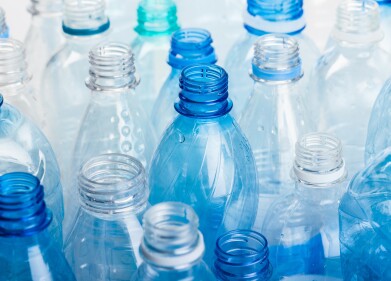Analytical Instrumentation
SCION's Analytical Excellence for the use of Alternative Carrier Gases
Apr 18 2018
Helium is one of the most common and lightest elements in the universe. The boiling point of helium is closer to absolute zero than that of any other element, and as such it is used as a cooling medium in large magnet containing equipment, like MRI's in hospitals worldwide, but it also has many other applications like filling novelty balloons to make them float, in lasers due to its non-reactive, noble status, and in laboratory applications, like HPLC and GC.
When using helium, consideration is rarely given to the fact that after use, the helium cannot be re-used! Helium cannot be manufactured, meaning that with every use we are depleting the world’s resources of helium.
Helium is produced as a by-product from the extraction of natural gas, originally only in the US but nowadays also in Qatar, Algeria and Russia. Yet, there is increasing demand, especially from China as it is a growing market, which cannot be met. This leads to helium shortages and results in increased prices. Where possible, alternatives for helium need to be considered and implemented.
The importance of carrier gas selection has been a discussion point amongst users of Gas Chromatography for many years now, but this topic has many different angles from which to consider; such as price, performance, speed and analytical compatibility. To serve as a carrier gas in gas chromatography, there are two properties of the gas that users look for; it needs to be available in sufficient purity and inertness.
There are three gases that are commonly used as a carrier gas: nitrogen, helium and hydrogen. The efficiency comparison between these gases is given by the Van Deemter curve which relates the plate height (efficiency) with carrier gas velocity through the column (speed).
The most efficient gas is hydrogen, followed by helium and then nitrogen. Even though the optimum plate height for the three gases is almost identical, helium and nitrogen are behind with respect to analysis time (speed). When viewing the curves proposed by Van Deemter et al (1956) we see nitrogen has a narrow optimum, with both helium and hydrogen having wider optimums, meaning they may be used at higher velocities with only little sacrifice in separation efficiency.
Hydrogen is considered the optimal choice, combining high efficiency separations with short analysis times. Yet, hydrogen has a safety risks; a 4% concertation in air will lead to explosions. To date, the worldwide carrier gas of choice has been the second most efficient gas: helium. However, with the rising cost and apparent shortage, the use of alternative carrier gases has increased over this time.
At SCION Instruments we take great care in designing analytical solutions, by simply changing to hydrogen – a faster gas as we have seen, we can improve the analytical run time – so although we are using more gas, the gas is cheaper (either from a cylinder or generator) and therefore has two advantages over helium - price and performance, without sacrificing separation.
From the study performed by the SCION's application team, the following may be concluded:
- With the use of alternative carrier gases laboratories can reduce costs by moving to hydrogen, and optimise speed of analysis without sacrificing resolving power
- With the use of alternative carrier gases laboratories can reduce costs by moving to nitrogen or hydrogen, and optimise the analysis after practical considerations of the results
In future studies SCION will focus on the transfer of well accepted analytical solutions from helium to nitrogen. This will ensure that users will receive the instruments with lowest cost of ownership.
For further information please click here.
Digital Edition
PIN 25.1 Feb/March
March 2024
In This Edition Safety - The technology behind the ION Science Tiger XT - Safety with ammonia and LOHCs as hydrogen carriers Analytical Instrumentation - Discussion on new tribology te...
View all digital editions
Events
Apr 22 2024 Hannover, Germany
Apr 22 2024 Marrakech, Morroco
Apr 22 2024 Muscat, Oman
Apr 22 2024 Rotterdam, Netherlands
Apr 23 2024 Singapore


















